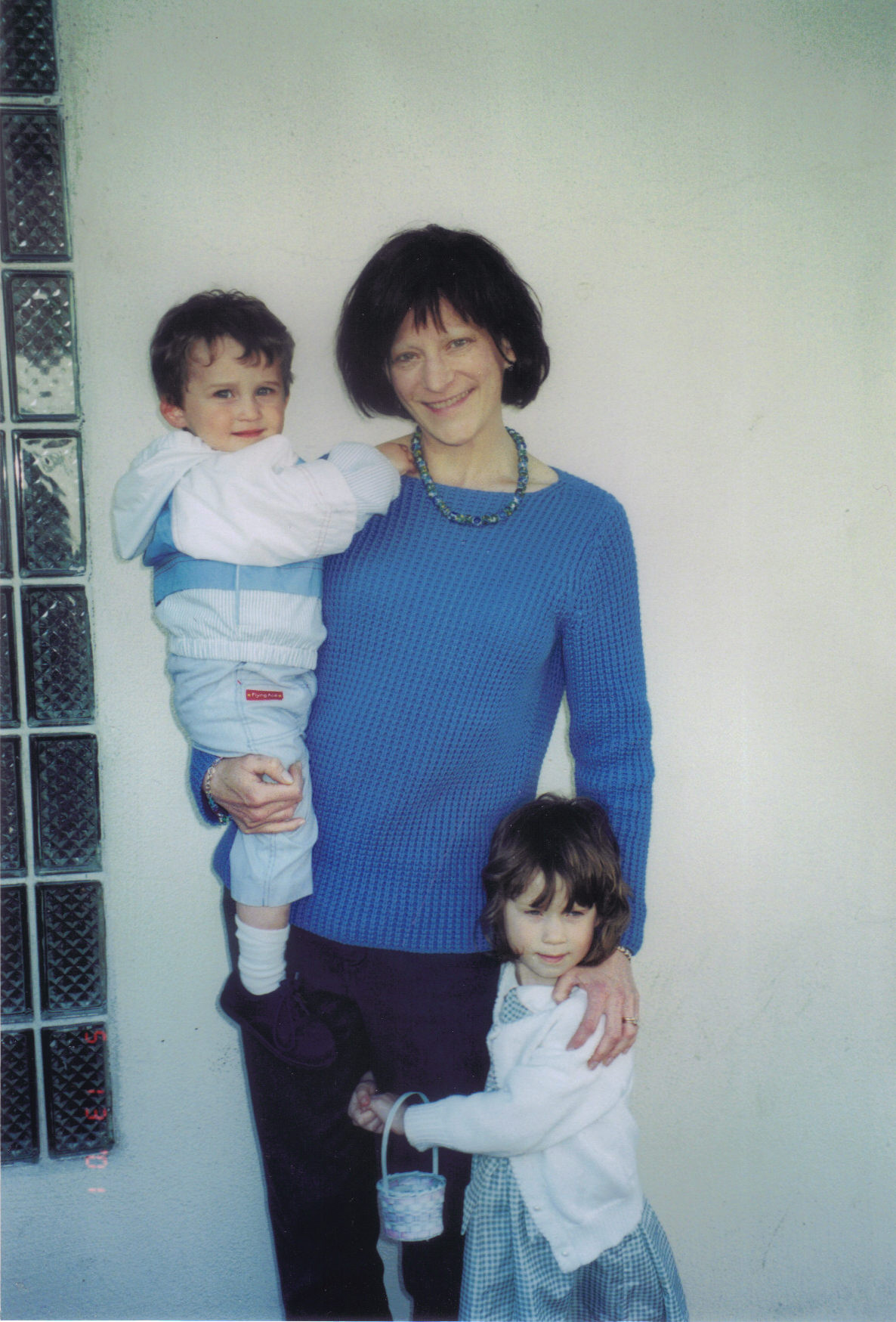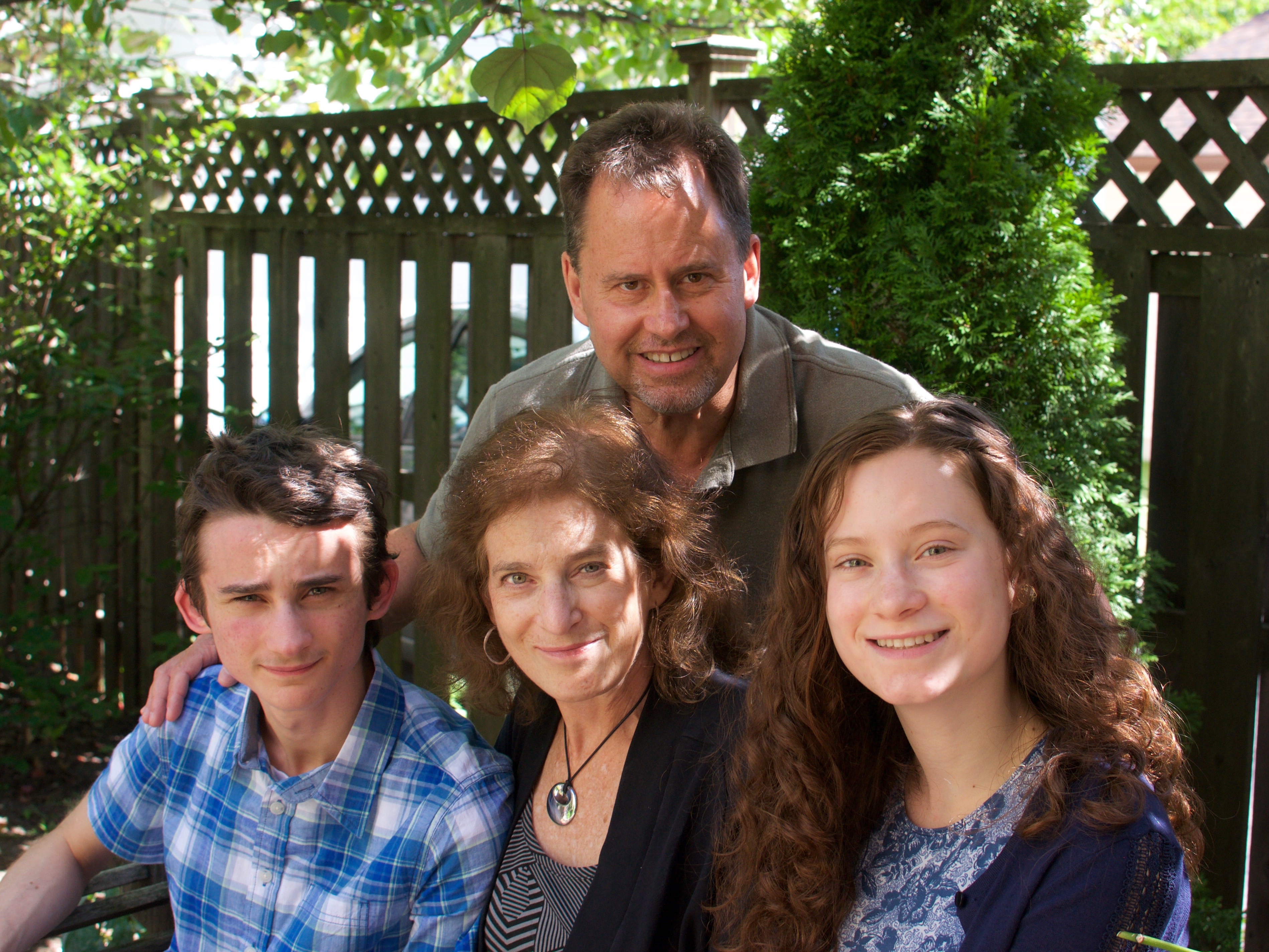I am glad to be here. Literally.
Being a survivor is a good thing. I could have been six feet under, after being diagnosed with acute lymphoblastic leukemia (ALL) on December 16, 2000. I was 40 years old, raising two children with my husband Ron. Our daughter was almost 4 years old and our son was 16 months.
After I was diagnosed, I spoke with a survivor through The Leukemia & Lymphoma Society’s First Connection program. Hearing her voice on the phone gave me so much hope. She was seven years post-diagnosis. I told her, “I can’t wait to be on your side of the fence.” About two years later, I was, having gone through training to be a First Connection volunteer. It makes me feel good to help others. When I was in the hospital, my mother said to me, “Who knows? Maybe you will be a spokesperson for the cause someday.” I responded by telling her no way, I just wanted to get back to my life - I did not want to be a member of this club.

Well, thanks goodness I am a member, because I would not have wanted the alternative. Being a survivor, I wonder, “Is this who I am? Is this how I will be known for the rest of my life?” I remember a friend introduced me to a friend of hers and told us, “Oh, you two have a lot in common!” She had breast cancer. Is that all that I am to people?
When I completed six months of chemo, I thought I was done and could get back to my life. I had a relapse one year after my initial diagnosis and my best option for survival was a bone marrow transplant. My siblings matched each other, but not me, so my doctor found a match in the National Bone Marrow Registry. One year after my transplant I was off all transplant-related medications. Then the real healing began.
At the time of my transplant, which was March 2002, there were no programs for survivors. I was medically better, but a wreck emotionally. The reality of what I went through had hit me and I became depressed. I met with a therapist who specifically talked with cancer patients. After months of not wanting to take an anti-depressant, I decided I wanted to feel better, so I began the meds. They helped. I was also asked to participate in survivor focus groups at a local hospital. I would like to think that those meetings helped create the Reiki, yoga, cooking classes and other programs that are now available to patients and survivors.
What also helped was being physically active again. Even though I did not have much strength, I began going for walks in my neighborhood. Then I joined a gym to build up my strength. When I felt stronger, I took fitness classes. That made me feel good physically and emotionally, and it still does.
Everybody is different and people recover at different rates. I was tired for two years after my transplant. No one should feel like they are less of a person if they are not living up to someone else’s standards of where they should be, medically or emotionally. Each person’s body responds differently to treatment and one person’s cancer may be different from another’s.
The thing about surviving cancer is that you think once your treatments are over, you’re done. But it is with you for the rest of your life. After I recovered and got, let’s say, a sore throat, I would think the leukemia was back. Anything that happened to me or still happens, I blame the disease. Some was the result of leukemia, such as becoming deaf in one ear because of all the treatments I had. Another was being diagnosed with white melanoma, which appeared in my thumbnail and led to the removal of half of my thumb. This occured five years after my transplant. Also, my iron levels were high due to all of my blood transfusions. So I had phlebotomies to remove the iron from my blood. It’s like donating blood and then my bag of blood is thrown out. I did that every other month for a couple of years. Recent blood work came back showing high iron levels, so I have begun phlebotomies again.
I recently had a colonoscopy (my second). I was crying when I woke up and the nurse asked me if anesthesia makes me cry. I told her no. Being in a recovery room brings back memories, so I get emotional. Also, every year, on December 16, I get teary-eyed, reliving that fateful day from 2000. Time does heal, but it was the day that changed my life. I do think of my life “before leukemia” and “after leukemia.” A friend once asked me why I don’t celebrate the recovery date instead. I told him there was no exact date when I felt better, since it was a gradual process.
I used to cry whenever I passed the hospital where I was first diagnosed. Before leukemia, it used to bring a smile to my face, as it was where my babies were born. Now I see it as where I was so ill. But I had wonderful people who took care of me and I returned last month, my 15th anniversary, to have lunch with my favorite nurse. She appreciated it so much. Nurses like seeing the result of their care and I am proud to be an example.
I still get blood work done at least twice a year. I also see a dermatologist, nephrologist (kidney doctor) and cardiologist, because it is not known what long-term damage treatment may have done to my organs. The doctors know I will not wear a gown, since it reminds me of being sick.
As a long-term survivor, I can tell you that I have energy and any lack of it is because I am older and not because of leukemia. Intimacy with my husband was slow going for awhile, but it did return. Sometimes I wonder if I will die sooner because I had leukemia. But there is no way to know.
The best part of being a survivor, which is what kept me going when I was lying in a hospital bed, is being present for life events. Whether it was walking my daughter to school on her first day of kindergarten or crossing an item off my bucket list, living life is very fullfilling. Watching my children grow up makes me emotional, because I think, “What if I was not here to experience this?” But more importantly (which was my main reason for fighting leukemia), I had to be their mother.
People tell me I am an inspiration to them. Birthdays have always been important to me, but more so now. Whenever someone complains about getting older, I tell them how lucky they are to be on this earth for another year. Survivors have different perspectives.
I am not working now, but I am busy taking care of my family, keeping myself healthy, volunteering at school, a dance class, for LLS, etc. I do like feeling useful, productive and important, especially when LLS asks me to speak at an event, write a blog or be interviewed for an educational video.The social workers at the hospital where I had my transplant will ask me to talk to patients or participate in an event. I am embracing what my mom told me 15 years ago in the hospital: “Maybe you will be a spokeperson for the cause someday”.
Leukemia will always be a part of my life. But it is on the back burner now instead of the front.
(Photos below: a collage of her illness; Mother's Day 2001 five months after diagnosis; and the family today)



Laura Weinger Housley who lives in Maplewood, N.J., was named LLS's Woman of the Year for New Jersey in 2011 and was the Honored Hero for Verona's Light the Night Walk in 2012.
Read other stories about survivorship.
